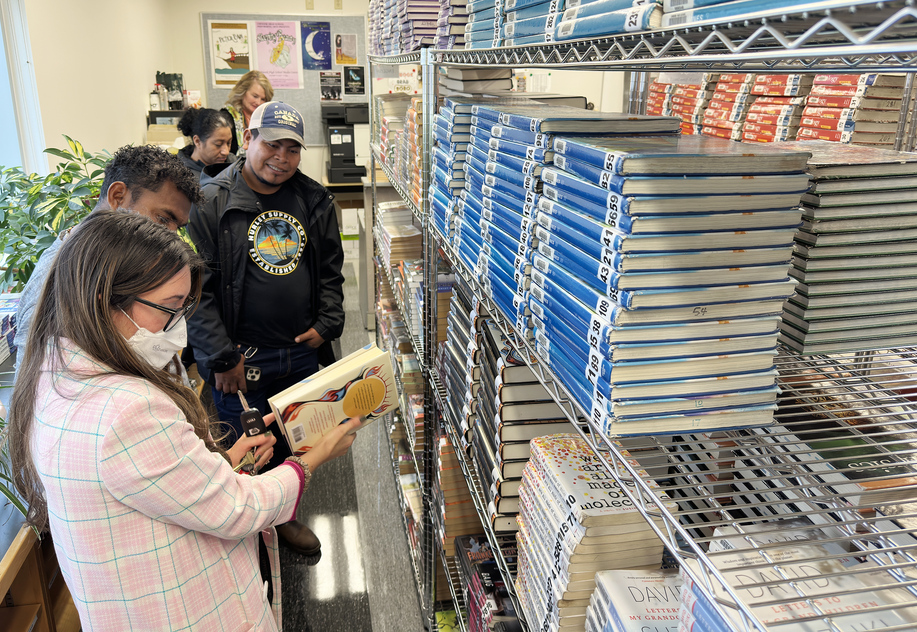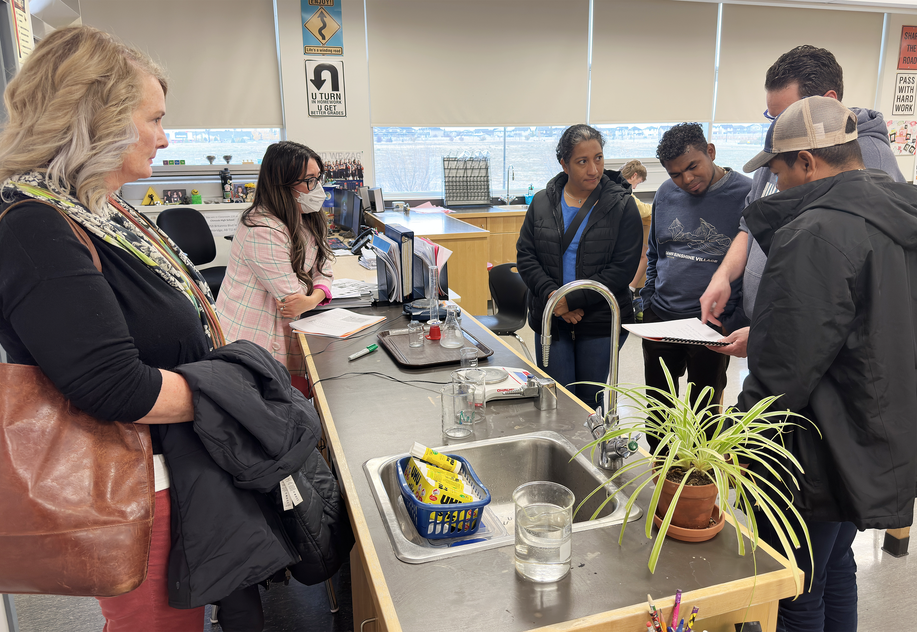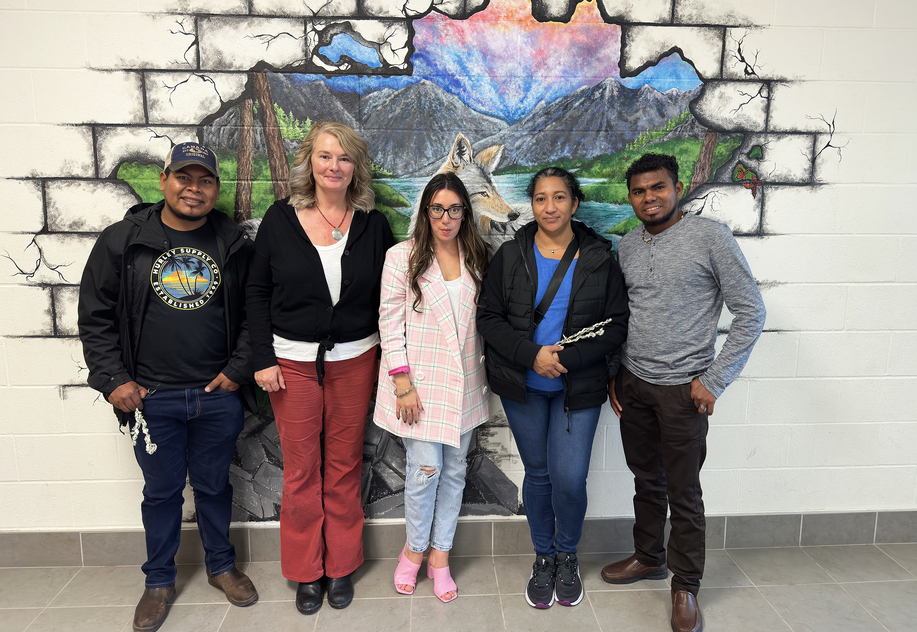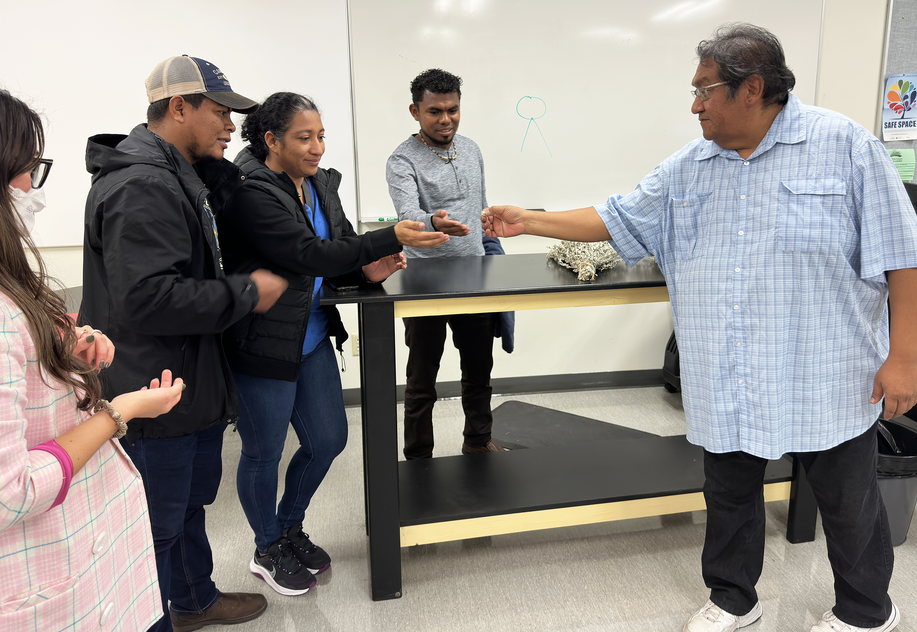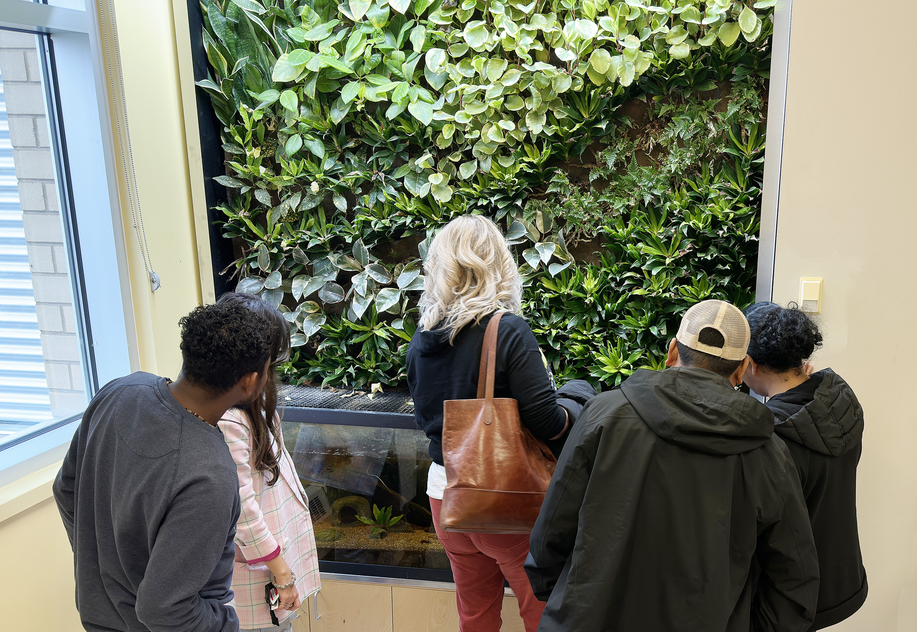Nicaraguan delegation from Change for Children visits Chinook
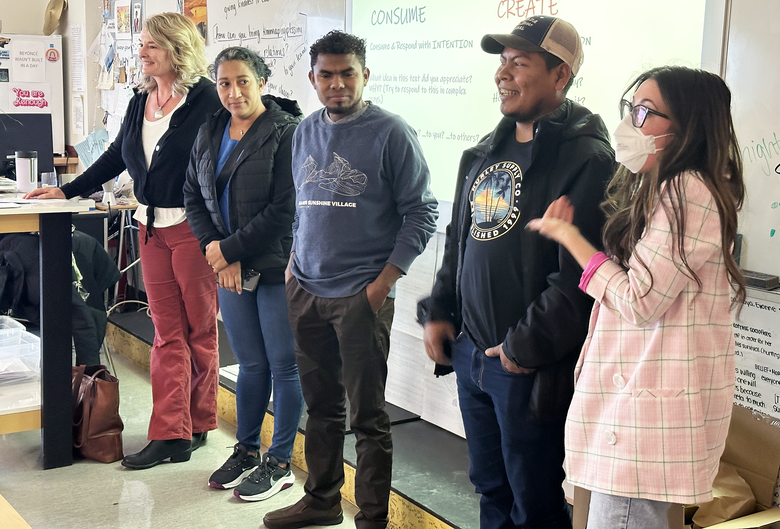
Earlier this month, Chinook High School welcomed some special visitors from Nicaragua.
Guests included Alonso Joseph, Tony Llorente and Edda Muller, who are Miskito Indigenous people, and also, Change for Children field staff. The trio has been involved in testing innovations in the Bosawas region through the Local Knowledge: Global Goals Project and the Technology for Education projects.
Joseph, a liaison for the Indigenous tribal government, Llorente, who is involved in mapping, monitoring and evaluation and Muller, who has expertise in pedagogy and gender equality, stopped in Lethbridge as part of an expansive Canadian tour.
The Chinook High School tour was facilitated by Chinook teacher DeAndra Sullivan, who was one of eight teachers selected in the province to go Nicaragua last summer with the Alberta Teachers Association and Change for Children.
Change for Children is a rights-based organization, based in Edmonton, that has worked in the Global South, specifically in some of the most remote communities in the world, for over five decades. Change for Children's priorities are education, Indigenous peoples, water, climate change, food sovereignty and health.
“In Nicaragua, we travelled eight hours up the River Coco in to the remote and isolated Miskito Indigenous Territory in the BOSAWAS Biosphere, the second largest rainforest in the world, and a UNESCO protected site,” said Sullivan. “There is no electricity, roads, power, water or infrastructure. This is an area of the world where their Indigenous language has remained strong because they have been isolated and also neglected by the Nicaraguan government.”
Sullivan described the situation she observed with school sin the area, that in no way resemble the buildings we have here in Canada.
“Some communities had schools with walls, doors and desks, others were bamboo poles,” she said. “Students were eager to learn and teachers were eager to grow and deliver instruction, while most made roughly $600 U.S. per month, if they had certification, which is extremely hard to get due to systemic barriers and poverty.”
Sullivan and her group worked with local pedagogy specialists, members of the Indigenous Territorial Government, those working to promote gender equality, and the 60 Million Girls Foundation to collaboratively share ideas and insights with each other, and teachers in the BOSAWAS.
“We raised money to purchase supplies for schools and I know those supplies are being used today in communities along the Rio Coco,” said Sullivan. “I am very proud of this, and we all should be proud we can help others.”
More information about Change for Children can be found here: CHANGE.












